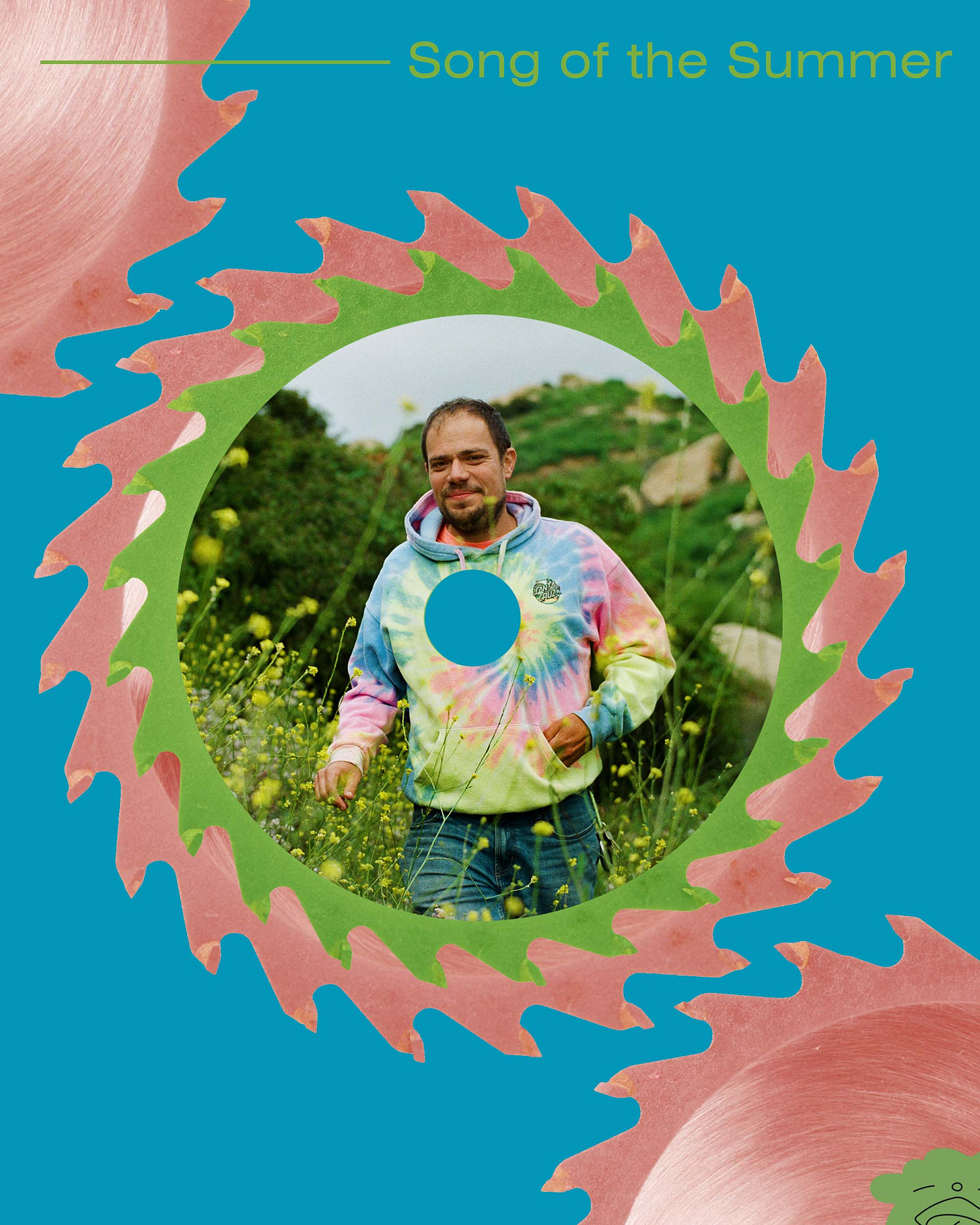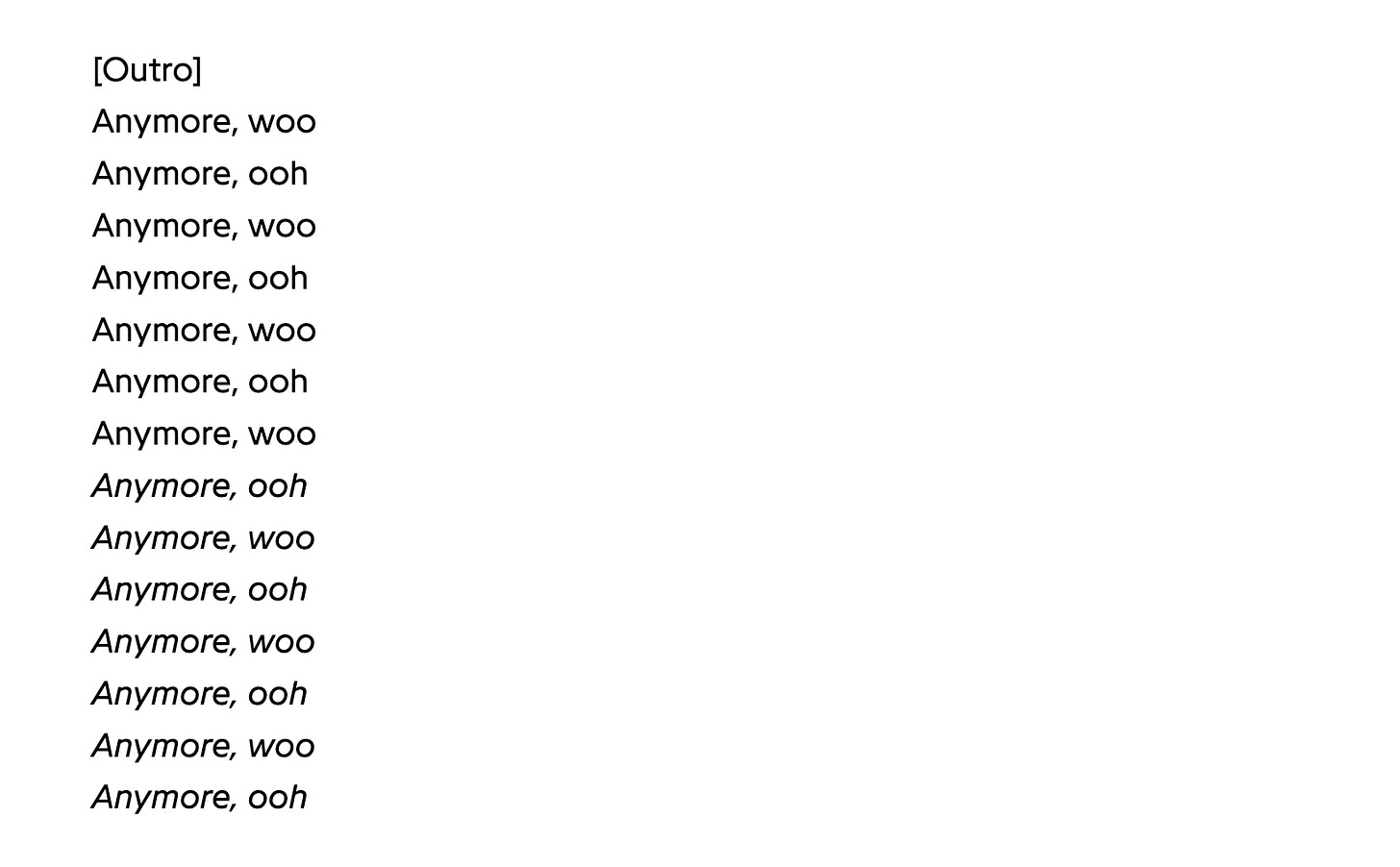Song of the Summer
A deep dive into the song "3 Summers" by Jeff Rosenstock.
The seasons never feel like seasons in California. The sun is consistent most of the year, and the pseudo-Mediterranean climate rarely changes. Despite this, we continue to find new ways to make small talk about the weather.
The differentiation between a perfect day and a slightly imperfect one is razor-thin and often exaggerated. Do you feel a breeze? How slight is it? How many clouds populate the sky? Do you feel your shirt sticking to your skin? Talking to transplants from around the states (and the world!) who come to Los Angeles for work, I cannot relate to their experiences with seasonality — how jarring it feels, how much they miss it.
Seasons demarcate periods of growth, decay, and the fertile transitions between. Southern California acts as its own summer world—as it is the only season we can claim as our own. From the paintings of David Hockney and Robert Bechtle to the cinematography of films like The Long Goodbye or The Graduate, the quality of the light rays—harsh and inescapable—are intrinsically connected to the region. Even in the winter, when sunlight is at its least, the daytime feels like summer.
Summer is also when school ends. It is the first encounter with freedom that children properly understand and grow to miss. Summer is when blockbusters are released. Summer concerts in the park, summer cocktails, summer trips to the beach, summer picnics, summer vacation. Summer markets a mythos around itself; it gives itself importance — training us to crave it when it is gone.
Jeff Rosenstock’s fifth solo album Hellmode is about tension, feelings “butt[ing] up against each other and it doesn’t make sense… How can I be happy that this thing is happening while this other terrible thing is happening”. Understanding the song via its tenses — noting when it oscillates — gives us context to the various dichotomies at play. The differences between ingenuity and fabrication, perception and reality, past and present.
Beginning in the present tense, the speaker bristles up against his privilege, feeling like a hypocrite and impostor to the communities central to his identity. These portions of the song are a jagged mix of self-pointed judgment (“Don’t tell yourself that you’re not evil”), existential questioning (“How long can you defend against a cheat code”), and manic yearning (“Stay young until you die”). These verses are long and relentless. Lines attack each other — and the speaker himself — in a machine gun spray of overwhelm, negativity, and self-consciousness.
We first visit (return to) the past with the lines, “I danced and sang / I held my friends / For three whole summers." The lyrics of this section are disarming — the verbs are relaxed, simple, and monosyllabic. The sentiments are warm. The speaker makes less abstract judgments of himself and invites a more measured reflection. This verse answers the one before it — remarking how all he needed was “love… warmth… [and] pressure.”
Side note: I love it when an artist inserts a specific detail about their life that only they know about but becomes super impressionistic to the listener. The title, sung as “three whole summers” in this verse, is that. We are not privy to what three summers Rosenstock is talking about — but we fill in those details with our own experience. Back to the past.
Our time here is brief as we are whisked back into present day — this time with increased anxiety. The refrain from the previous verse, “I want the warmest breeze to blow..” returns — heightening and heightening with desperation until it finally climaxes into Jeff singing, “Stay young until you die,” over and over again. The song then reaches max loudness and descends into the guitars chugging into a stop.
We take a second to breathe and oscillate back in time. With twinkling acoustic guitar, the speaker watches the wind blow and feels idle, helpless before the weather. He reveals that the nostalgia of “the three whole summers” he previously told us about was a defense mechanism that hid his anxiety. In stasis and numbness, the dread only gestated. The idyllic veneer is broken open.
He leaves the song with a final devastating admission, singing, “I’m different than before and you can’t help me anymore.” The word anymore ringing out over a fading outro. We can take the anymore in context as a set statement of finality. I likewise hear the word sung with a question mark — bargaining, wondering with desperation if this truly is it.
Listening to this song at home (instead of on the freeway when I scream it like a madman; more on this in a future entry), I think about the first line of the song a lot. “Don’t kid yourself.” Kid has double meaning; used as a form of "kidding", the word is closer to deception and false hope. Rosenstock also dips into verbification and treats kid as a noun-turned-verb — the meaning now closer to infantilization. Literally, do not make yourself a kid.
“3 Summers” is my song of the summer, because it is a song mourning summer; and how summer morphed into a hologram of itself. In an autumn world, I realize how tight I held onto the idea of the season, unaware of the actual season itself — passing quickly without fanfare.
This post is not sponsored. I just love Jeff Rosenstock’s music. Buy Hellmode here.




